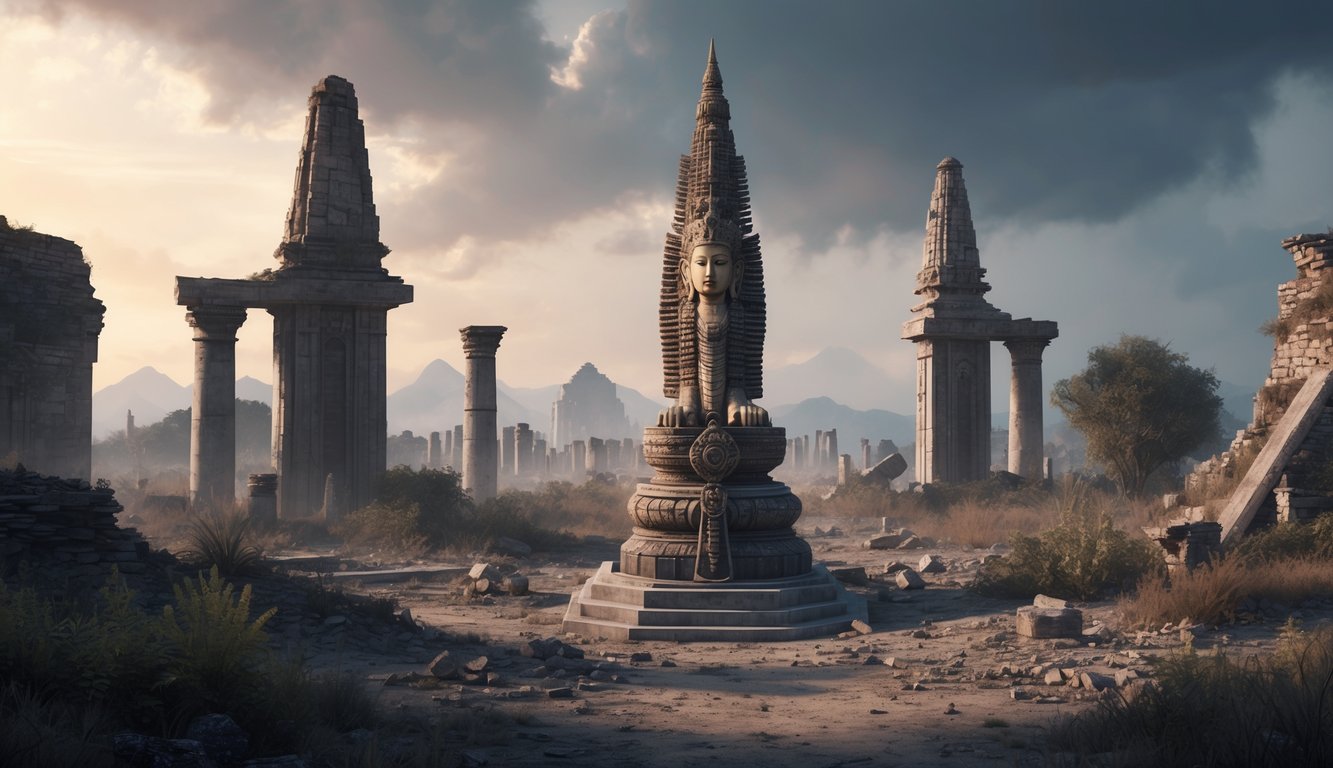Don’t Miss Out On This Unique Astrological Opportunity
Are you tired of spinning your wheels and getting nowhere? Simply put, you’re out of sync: you’re out of alignment with your astral configuration.
But: there’s a kind of map that can help you reclaim your alignment. Think of it as your own personal blueprint to success and happiness: a blueprint that will help you live your most amazing life.
Get started here.
Habakkuk 2 is a powerful chapter in the Bible that offers deep insight into themes of faith and justice.
In this chapter, the prophet Habakkuk stands at his watchtower, waiting for God’s response to his concerns about the wickedness he sees around him. God answers by reminding Habakkuk of the vision and its appointed time, emphasizing that the righteous will live by their faith.
The chapter then outlines several “woes” or judgments against those who act unjustly and pridefully.
These warnings serve to highlight the eventual triumph of righteous living.
Through vivid imagery and powerful words, Habakkuk 2 underscores the futile nature of idolatry and misplaced trust in false powers.
Key Takeaways
- God’s vision has an appointed time.
- The righteous live by faith.
- Idolatry is ultimately futile.
Habakkuk’s Vision and the Appointed Time
Habakkuk received a vision that was set for a specific time.
This vision promised to come true, despite any seeming delays.
Waiting plays a crucial role, as trust in God’s timing reflects faithfulness.
The Assurance of God’s Response
The Lord assured Habakkuk that the vision had a set time when it would happen.
Habakkuk was told to write the vision clearly so that it could be easily understood.
Although it might seem to delay, it would surely come and not be late.
This teaches you the importance of patience and trust in God’s promises.
The Role of Faithfulness
Faithfulness is key when waiting for God’s promises to come true.
In Habakkuk’s time, being righteous meant living by your faith.
This meant staying true to God’s instructions and trusting His timing.
The challenge is to remain committed, even when the timing of the vision isn’t clear.
You are encouraged to live faithfully, knowing that God values your dedication and will fulfill His plans.
The righteous will live by faith, demonstrating trust even in uncertain times.
Woes against the Wicked
In Habakkuk 2, serious warnings are given to those who act unjustly and harm others for their own gain.
This includes those who are greedy or rely on violence and deceit.
These warnings highlight the eventual triumph of righteous living.
Condemnation of Greed and Injustice
Greed and unjust gain are at the heart of the woes described.
When people take what is not theirs, it leads to a cycle of ruin.
The image is painted of creditors rising up against the greedy, demanding what is rightfully theirs.
You see the inevitable downfall of those who try to build their wealth at the cost of others.
It’s emphasized that extortion and oppression cannot go unchecked. Plundering other nations will eventually result in backlash.
This highlights how those greedy actions sow seeds of their own destruction, leaving a legacy of violence and lost respect.
The concern about unjust labor, where people work hard but gain little, is also stressed as a glaring injustice.
The Certainty of Divine Retribution
You are assured that there is no escape for those who thrive on violence and extortion.
The passage paints a vivid picture of what awaited the plunderers: they will be plundered themselves.
Those who built on bloodshed will see their efforts crumble.
Divine justice is certain and inescapable.
Those who built wealth through harm soon find it’s not secure.
There is nowhere to hide from the consequences.
The passage serves as a reminder of the power of accountability.
Actions driven by greed and injustice eventually lead to loss and ruin, ensuring that divine retribution becomes an inevitable reality.
The Futility of Idolatry

In Habakkuk 2, idols are shown as empty and powerless compared to the living God.
The contrast helps highlight the misguided belief in idols, which are just man-made objects, not sources of life or power.
The Emptiness of False Gods
Idols, whether made of wood, stone, or other materials, are lifeless and lack the breath of life.
People often craft these statues or images to represent gods, but they cannot respond or interact.
They promise strength and guidance but fail because they are just inanimate objects.
When you rely on an idol, you’re putting faith in something that is lifeless and powerless.
Imagine trusting a block of stone to deliver wisdom or protection. Idols are empty, offering no real answers or help in times of need.
The problem isn’t just the idols themselves, but the misplaced trust people have in these false gods.
This false belief in idols distracts from seeking true guidance and support from a higher power.
The True Glory of the Lord
God’s glory is unmatched and unique, unlike the false hope offered by idols.
In His holy temple, God is alive and powerful, offering real guidance and support.
When you see God’s true glory, you realize that it outshines any man-made creation.
While idols sit in silence, unable to move or act, God is active and present.
The Bible contrasts idols’ lifelessness with God’s living nature.
God invites you to recognize His presence and power.
Putting trust in Him is choosing life and breath over stone and images.
By understanding this, you can see why the Lord is worthy of praise and reverence, beyond what any idol can promise.
Frequently Asked Questions

Habakkuk 2 offers a deep exploration into themes like faith, vision, pride, and divine timing.
You will find clarity on these topics and discover the significance of God’s interactions with Habakkuk throughout this chapter.
As Habakkuk wrestles with the challenges of his time, he demonstrates the importance of seeking God for spiritual connection and understanding.
Through patience and trust, he learns that God’s plans unfold according to divine wisdom, even when they seem delayed.
This chapter ultimately encourages believers to remain faithful, trusting that God’s justice and promises will be fulfilled in due time.
What does “the just shall live by his faith” in Habakkuk 2:4 mean?
This phrase highlights the importance of faith in one’s life.
It suggests that the righteous will remain steadfast and trust in God, even amidst uncertainty and difficulties.
How can we interpret the vision described in Habakkuk 2?
The vision in Habakkuk 2 is a message from God that was meant to be clear and understandable.
It was to be recorded and shared so that anyone who read it could grasp its significance and urgency.
In what way does Habakkuk chapter 2 address the concept of pride?
Habakkuk 2 addresses pride by warning of its downfall.
Those who are proud often rely on their own strength rather than on God.
This chapter contrasts their fate with the humble who live by faith.
What lessons can be learned from the pronouncements against the unrighteous in Habakkuk 2?
The announcements against the unrighteous in Habakkuk 2 serve as warnings.
They show the consequences of straying from God and engaging in harmful behaviors.
These pronouncements encourage self-reflection and a return to righteousness.
How does Habakkuk 2:3 explain the timing of the vision?
Habakkuk 2:3 assures that the vision will occur at its appointed time.
It emphasizes patience and trust, as God’s timing is precise and reliable, even if it seems delayed from a human perspective.
What is the significance of God’s response to Habakkuk’s complaint in the second chapter?
God’s response to Habakkuk underscores His awareness of injustice and His eventual intervention.
It reassures that divine justice is forthcoming.
This provides comfort and faith to those who await it amidst troubling times.



